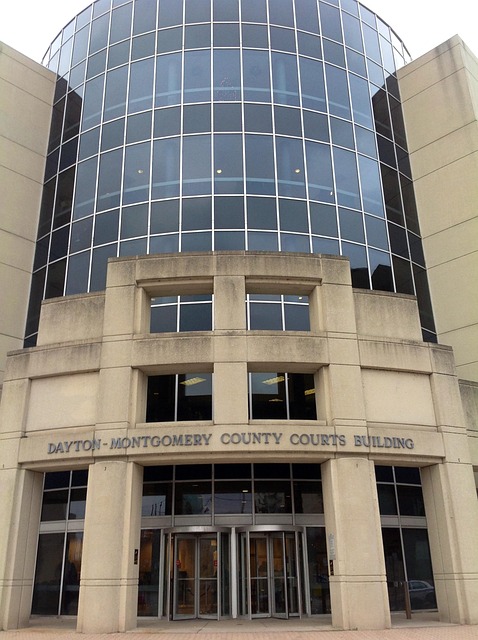The RF Securities Industry Regulation is a critical framework for maintaining financial market stability, protecting investors, and mitigating risks. It significantly influences securities litigation by providing a defense mechanism against allegations, with adherence to regulations avoiding indictment and fostering ethical practices. Regulatory bodies set standards for conduct, reporting, and fair dealing, impacting legal strategies; stricter rules on data privacy may limit evidence in cases. The regulation drives robust risk management and compliance, encouraging firms to integrate guidelines into operations to navigate complex legal landscapes and minimize high-stakes litigation risks. Non-compliance leads to internal investigations and lawsuits, requiring financial institutions to adopt strategic defense measures and a deep understanding of evolving legal frameworks for long-term sustainability.
The RF Securities Industry Regulation is a cornerstone of financial stability, shaping the landscape for businesses within the financial services sector. This article delves into the intricate world of regulatory bodies and their profound impact on litigation practices, risk management, and compliance strategies. By exploring these aspects, we uncover how regulation influences the operations and legal challenges faced by financial institutions, providing valuable insights for navigating this dynamic environment, especially in light of evolving market trends.
- Understanding RF Securities Industry Regulation: A Foundation for Financial Stability
- The Role of Regulatory Bodies in Shaping Litigation Practices
- Impact on Risk Management and Compliance Strategies
- Navigating Legal Challenges: Implications for Financial Services Companies
Understanding RF Securities Industry Regulation: A Foundation for Financial Stability

The RF Securities Industry Regulation is a cornerstone in maintaining the stability and integrity of financial markets. This regulatory framework is designed to protect investors, ensure fair practices, and mitigate systemic risks. By implementing robust standards, it safeguards against market manipulation, fraud, and abusive activities that could destabilize the economy. Understanding this regulation is paramount for professionals within the industry as it guides their conduct and shapes the landscape for high-stakes cases involving complex financial matters.
In the realm of securities litigation, the impact of financial services regulation cannot be overstated. It serves as a crucial defense mechanism against allegations, helping institutions navigate potential legal pitfalls. By adhering to these regulations, firms can avoid indictment and demonstrate their commitment to ethical practices. This is particularly relevant when addressing issues within philanthropic and political communities, where transparency and compliance are paramount, ensuring the longevity and trustworthiness of financial institutions in serving these sectors.
The Role of Regulatory Bodies in Shaping Litigation Practices

The role of regulatory bodies is pivotal in shaping litigation practices within the RF Securities industry. These organizations, tasked with enforcing financial services regulation, significantly influence how legal disputes are handled. Through their policies and guidelines, they set the standards for ethical conduct, transparent reporting, and fair dealing, which directly impact the landscape of litigation. For instance, stricter regulations on data privacy can limit the scope of evidence available to plaintiffs or defendants in high-stakes cases, thereby altering strategies employed by legal teams.
Regulatory bodies play a crucial role in mitigating risks associated with financial markets, including potential misconduct that could lead to costly lawsuits and reputational damage. By proactively monitoring market activities and enforcing compliance, these entities encourage responsible practices among securities firms. This, in turn, can help avoid indictment in cases of fraudulent activities or breaches of fiduciary duty, as regulatory oversight acts as a deterrent and facilitates the resolution of disputes through alternative means, such as mediation or arbitration, rather than lengthy and costly courtroom battles.
Impact on Risk Management and Compliance Strategies

The RF Securities Industry Regulation significantly shapes risk management and compliance strategies within financial services. As laws evolve to protect investors and maintain market integrity, institutions must adapt their internal controls and policies accordingly. This regulatory shift often drives a more robust approach to risk assessment and mitigation, focusing on proactive measures rather than reactive responses. By integrating these regulations into their core operations, financial firms can enhance their ability to navigate complex legal landscapes and minimize exposure to high-stakes cases.
The impact extends beyond compliance; it fosters a culture of accountability across the philanthropic and political communities. Effective implementation involves sophisticated litigation strategies, ensuring that institutions are prepared to defend themselves against potential winning challenging defense verdicts. This proactive stance not only safeguards against financial losses but also strengthens the overall resilience of the industry, fostering trust among investors and stakeholders.
Navigating Legal Challenges: Implications for Financial Services Companies

The RF Securities Industry Regulation presents a complex landscape for financial services companies, with significant legal challenges emerging from heightened scrutiny. As regulations evolve to protect investors and maintain market integrity, businesses must adapt their strategies to navigate this dynamic environment. The impact of such regulation on litigation is profound, as companies face not only internal investigations but also external lawsuits stemming from non-compliance. This regulatory climate demands a robust legal defense strategy, emphasizing proactive compliance measures and a deep understanding of the evolving legal framework.
For financial institutions, staying ahead of these challenges means employing sophisticated risk management techniques and fostering a culture of ethical conduct. Engaging in general criminal defense strategies is crucial to mitigating risks and achieving extraordinary results when faced with regulatory action or potential indictment. By proactively addressing compliance concerns, companies can minimize exposure to litigation, ensuring their long-term sustainability and reputation in the face of stringent market oversight.
The regulation of the RF Securities industry plays a pivotal role in maintaining financial stability, with regulatory bodies significantly shaping litigation practices and risk management strategies. As seen, this legislation has a profound impact on the operations of financial services companies, pushing them to adapt their compliance approaches. Understanding these regulations is essential for navigating legal challenges and ensuring sustainable growth within the industry. The impact of financial services regulation on litigation underscores the need for continuous oversight and innovation in risk management, fostering a robust and trustworthy financial ecosystem.






